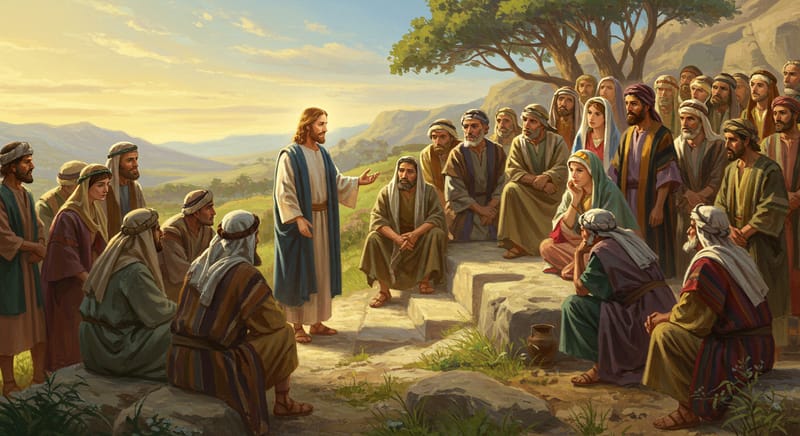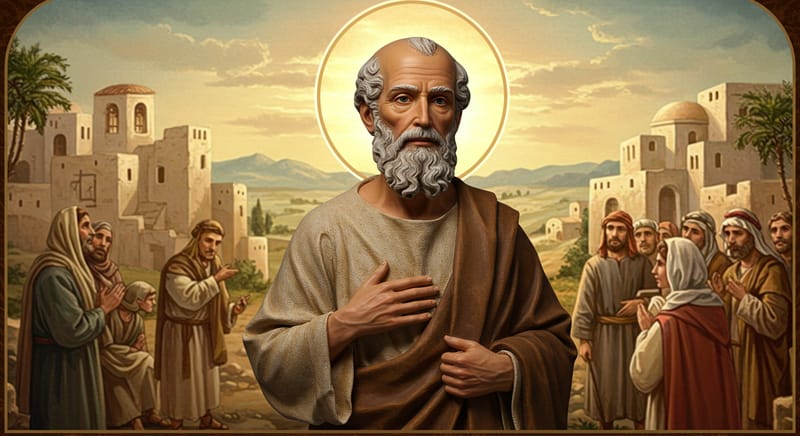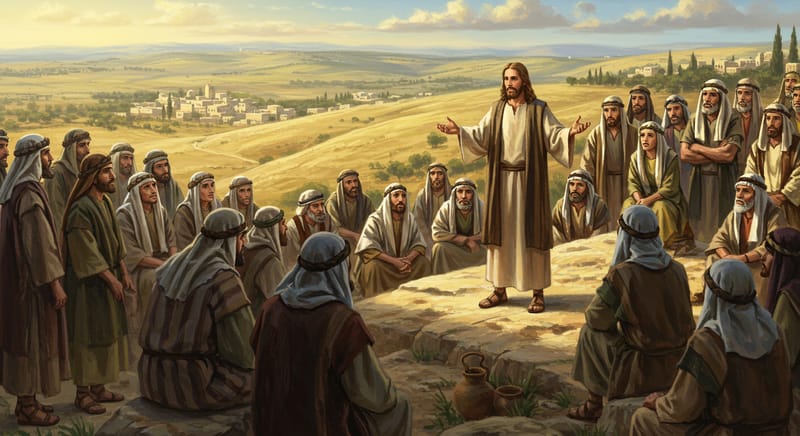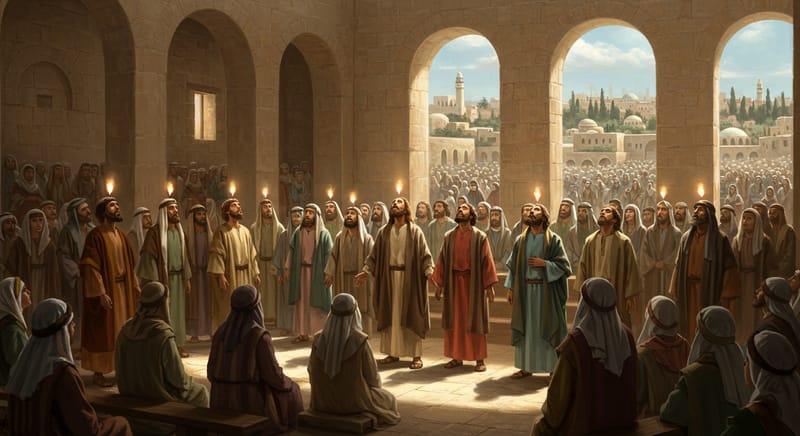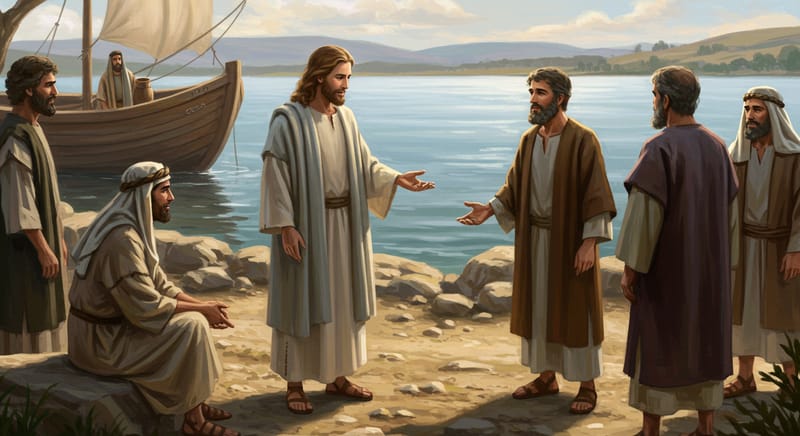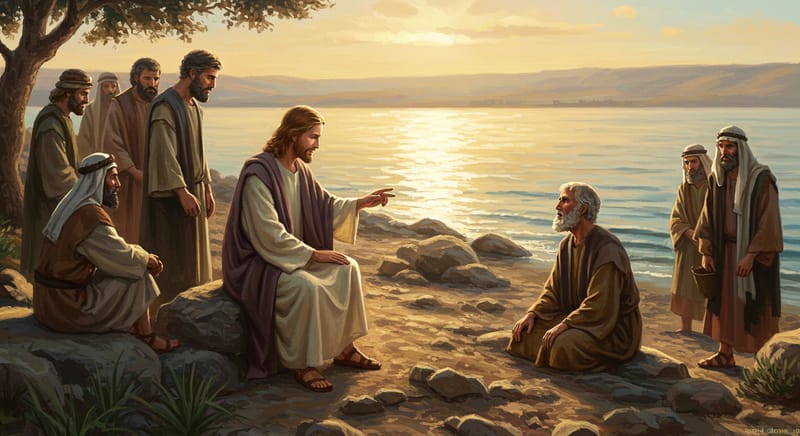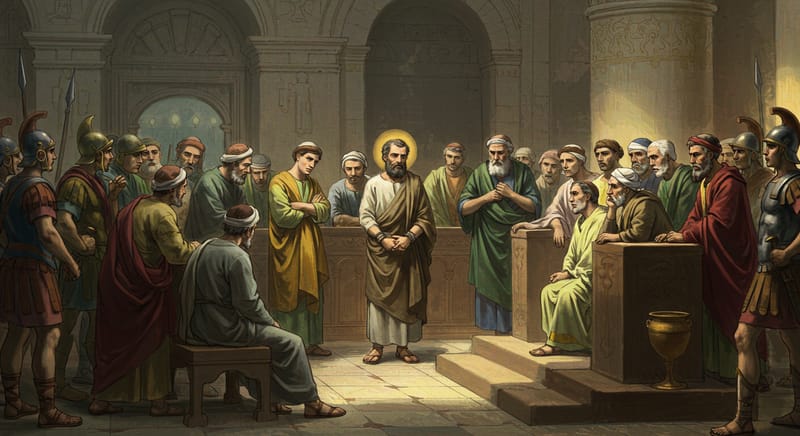DAILY HOMILIES
Jesus says, “If your right eye causes you to sin, pluck it out and throw it away.” In convenient terms, Jesus is saying that all sexual sins have root causes; they do not happen in a vacuum. Something always leads to something before that big something happens. Your right eye is something you often take for granted or consider as usual, but then, it has the potential of landing you in sin.
Read MoreToday, Jesus wants us to know He is more pleased with our reconciliation with others than our offerings. Just as our gifts to God are expensive, forgiveness is also costly. Forgiving others can be painful if the person refuses to acknowledge their fault. However, this pain is worth it because it is pleasing to God and it purifies our hearts from unnecessary burdens.
Read MoreNo matter how good we are, we all need people like Barnabas who coach (encourage) us into the stars we are meant to be. While others were scared of Paul because they judged him as a bad person who had later become a Christian, Barnabas saw in Paul a good man with a bad past. Let us learn from Barnabas to be less judgmental of people while encouraging them to let their light shine. Even the worst sinners have some degree of light in them. Barnabas mentored Paul and later became his partner when the Holy Spirit set them apart on a mission to evangelise the world.
Read MoreToday, many have lost their “taste” as salt and their “brightness” as a light. We claim to be Christians, but we make life difficult for others. We are a source of scandal to those who look up to us as role models. We have given bad examples and corrupted the minds of the young. Never assume that it is okay to do evil since no one is looking. Jesus describes us as cities built on a hill, meaning there can be no hiding place for us, even in the most secret places. What we do in the cover of darkness comes out openly to bring us to our knees. “For there is nothing hidden, except to be disclosed; nor is anything secret, except to come to light.” (Mark 4:22).
Read MoreWhen we say Mary is the Mother of the Church, we mean that she is the Mother of all who profess faith in Jesus Christ as their Lord and God. The church goes beyond a building (made of bricks and stone); it is a collection of human beings (believers). Mary, as the mother of the church, refers to her role as the mother of all who believe in the divinity of Jesus, not just those who are devoted to her.
Read MoreIf neither you nor anyone listening to you understands what you are saying, you are not “speaking in tongues”, you are not manifesting the presence of the Holy Spirit, you are simply speaking gibberish. St. Paul would say: “If, therefore, the whole church assembles and all speak in tongues, and outsiders or unbelievers enter, will they not say that you are mad?... If any speak in a tongue, let there be only two or at most three, and each in turn; and let one interpret. But if there is no one to interpret, let each of them keep silence in church and speak to himself and to God.” (1 Corinthians 14:23-28).
Read MoreAvoid using others to judge your progress in life. We are social beings and tend to follow the crowd. Also, we derive a sense of achievement from knowing that we are doing better than others, especially those within our close circle. Even among Jesus’ disciples, there were rivalries – arguments about who was the greatest. (cf. Luke 9:46, Luke 22:24). Peter wanted to know if John would have to carry a heavier cross, but this inquiry was never necessary.
Read MoreFor all those times, Peter would have to suffer; the only thing that would keep him going is the memory of his triple “yes” to Jesus’ question. Love is patient and kind; love takes no record of records; love never ends; love never gives up.
Read MoreWhen Paul stood before the tribunal, he immediately noticed a severe division between the camps of those who brought him to trial. Applying the wisdom of a serpent and the innocence of a dove, Paul decided to take advantage of the division between the Pharisees and the Sadducees. Paul introduced himself as a Pharisee who was on trial because of the issue of the resurrection of the dead. The moment he said this, there was an uproar in the assembly.
Read MoreAs Christians, we are constantly the subject of hatred by wolves who pretend to love us. Jesus does not pray that we should be taken out of the world. Jesus prays that we should be protected from the evil one. Even though we wrestle against principalities and powers (Ephesians 6:12), we are assured of God’s protection. We do not wrestle as victims but as victors, because Jesus has already overcome the world (John 16:33).
Read MoreThe thought of death should not frighten us since it is our chance of returning home. However, if we are scared of it, it is either because we are not prepared or we are certain of eternal condemnation – that is, we are yet to start fighting the good fight (against sin, the flesh, injustice and ungodliness) and we are not running the race of righteousness.
Read MoreOne of the fruits of the Holy Spirit is joy. You cannot have the Holy Spirit in you and remain sad and miserable because the Holy Spirit must bear fruit in you. The joy the Holy Spirit gives us remains regardless of whatever trials or tribulations we may encounter in life. Let us pray for an outpouring of the Holy Spirit upon our lives that he may fill us with supernatural joy and bless us with a kind of peace that this world cannot provide.
Read More
